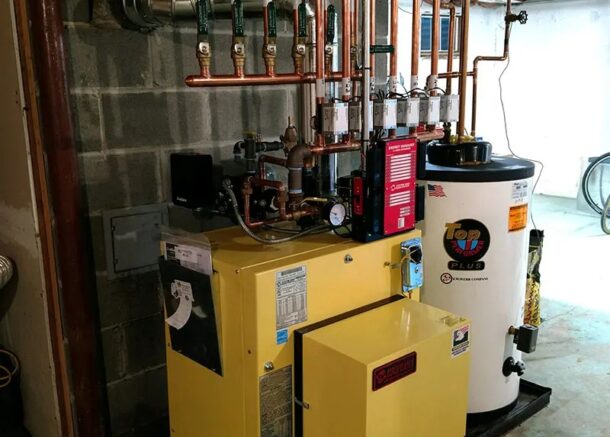As environmental awareness grows and energy costs rise, choosing an efficient and dependable oil heating system becomes the top priority for homeowners.
To make an informed decision, several factors must be considered, such as the local climate, house size, and insulation.
In US households, heating costs have risen by about 40 percent from 2022 to 2023, and continue to increase, according to Forbes. This makes the case for installing the right heating system that is efficient and reliable.
There are multiple options available, and it can be difficult to determine which system best meets your needs.
We look at some key factors to consider when choosing an oil heating system, such as comfort, energy efficiency, and cost savings.

Accessing Your Home Heating Needs
Understanding your heating needs is the first step in selecting the appropriate oil heating system. The size of your home and the quality of the insulation are important considerations when selecting the right system.
Colder regions, for example, may require larger-capacity systems. Well-insulated homes can benefit from systems that operate at lower outputs while maintaining comfort.
When we conduct this basic assessment, we are able to select a system that meets your household needs while avoiding unnecessary energy costs.
Understanding the Types of Oil Heating Systems
There are around three primary types of oil heating systems, each having its own unique benefits.
- Standard oil boilers are durable and have effective heat distribution. These systems are a reliable choice for steady home heating.
- High-efficiency oil boilers, which are built for energy savings, convert more fuel into heat due to their high-efficiency systems. Systems like these high-efficiency oil heating systems offer excellent energy efficiency. This makes them ideal for environmentally conscious homeowners.
- Combination oil boilers provide both space, heating, and hot water in one compact system. This can be a convenient solution for homes that have limited space.
When deciding on the type, take into account your household’s specific needs and energy usage habits. For example, if lowering fuel costs is a top priority, high-efficiency models offer a higher ROI.
Evaluating Energy, Efficiency, and Environmental Impact
According to a 2023 survey, almost 67 percent of U.S. adults are seeking sustainable features in homes. They are willing to implement some actionable measures to achieve this goal.
Energy efficiency is one of the most critical factors when selecting an oil heating system. High-efficiency systems can reduce fuel consumption and emissions, which is what is in demand for eco-friendly home solutions. This is achieved by capturing more of the heat generated during the combustion process. This heat would have otherwise escaped through vents and gone to waste.
Energy Kinetics recommends these advanced, high-efficiency oil heating systems because of their reduced environmental impact and energy savings. The systems maximize fuel use and minimize wastage. This means a greener, more sustainable choice while keeping your utility bills low.
Considering Your Installation and Maintenance Costs
The upfront cost of an oil heating system is anywhere between $9,000 and $16,000, depending on the model and home size. The operational expenses and maintenance can also add up over time. High-efficiency systems require more initial investmentbut tend to be more cost-effective in the long run. This is due to reduced fuel consumption and lower emissions.
The system size and compatibility also matter. Selecting the right size eating system is crucial because if it’s too small, it can struggle to eat in your home, and we also don’t want energy wastage or uneven heating.
Many professionals offer heating load assessments that calculate the optimal system size based on your home specifications. This ensures that the unit that you choose will work efficiently with the existing home infrastructure.
Features for Enhanced Comfort
Modern oil heating systems have a variety of features for convenience and comfort.
- Zone heating: this feature divides your home into heating zones and enables targeted heating in specific areas.
- Smart thermostats: Pairing your heating system with a smart thermostat can provide greater control of indoor temperatures and allow you to adjust the settings remotely.
- Quiet operation: High-efficiency models are also engineered for a silent operation. This is important when there is a requirement for minimal noise.
Government Incentives and Rebates
Check if your area offers financial incentives or tax credits for homeowners who install energy-efficient heating systems. These can make the system more affordable and rewarding for those who want to help the environment. According to the official website, the tax credit can be up to $3200.
Making the Right Choice for Your Home and Budget
As we see, choosing the right oil heating system requires careful consideration of the budget and your home’s unique needs. There are numerous options designed to provide reliable and eco-friendly heating.
Investing in an efficient oil heating system is not just about comfort but also a step towards a more sustainable home. The right choice made today can help you for decades to come.




Join the conversation: